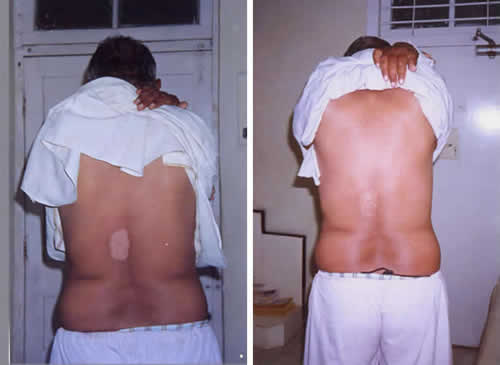Ataxia
Ataxia is more of a symptom before a disease. In Greek Ataxia means "loss of balance “or "Out of order." Ataxia is a general neurological symptom which makes patient feels anxious due loss of control while doing everyday activities.
Ataxia is lack of muscle coordination because of the small brain's (cerebellum) failure to control the body's posture, regulate its force and direct the limb movements, thus resulting into clumsiness or wobbliness.
Ataxia may affect the hands and fingers, the extremity, the entire body, talking or even the eye movements.
A person with a long-standing ataxia may have damaged a part of the brain (cerebellum) that controls muscle coordination.
Incidence:
Hereditary ataxia is uncommon. In case of heritable ataxia, more than one family member may suffer with the same disease of ataxia. Acute ataxia can be a relatively common impediment of conditions such as a stroke, encephalitis (infection of the brain), or multiple sclerosis. Men and women both are evenly affected.
Types of Ataxia
There are three main types of ataxia, which also includes reason based on the area of brain, ears or spine affected.
- Sensory Ataxia:- There is a loss of observation about body parts, because of affection of the dorsal column of spinal cord.
- Vestibular Ataxia:- these results from an impairment of inner ear, which forms vestibular system, accountable for maintain balance. Vertigo is a major symptom in case of vestibular ataxia.
- Cerebellar ataxia:- There is an affection of the cerebellum, where, depending on the precise area affected, one experiences different symptoms of imbalance.
Ataxia can be broadly classified in two types:
- Hereditary ataxia:- Here, the symptoms extend slowly, over many years and are caused by causal problems with the genes.
- Acute Ataxia:- The symptoms develop suddenly, due to a trauma, injury, or a health condition such as a stroke.
Causes of Balance Loss:
Ataxia can be caused by any of the following reasons:
- Hereditary fault present at birth from either of the parents or both.
- Deficiency of Thyroid hormone (Hypothyroid or under active thyroid) this can be checked by a simple blood test of T4, T4, TSH.
- Gluten allergy
- Brain tumor
- After effect of radiation overdose
- Drug abuse: Adverse effects of Cannabis, anti-epileptic medicines, some tranquilizers , alcohol
- Infections, like chicken pox
- Vitamin B12 deficiency.
- Alcohol abuse
- Head injury
- Brain surgery
- Exposure to toxic chemicals
- Multiple sclerosis, cerebral palsy, and other neurological conditions
- Deformity of the cerebellum while the baby is still a fetus
Loss of Balance (Ataxia) Symptoms
Ataxia can cause a wide range of symptoms suggesting loss of balance, such as:
- Loss of balance while getting up, walking
- Sense of giddiness or vertigo
- Difficulty in walking
- Difficulty in speaking
- Difficulty in swallowing (dysphasia)
- Difficulty in performing tasks that require a high degree of physical control, such as writing, eating etc.
Diagnosis of Ataxia:
In some cases, the cause remains anonymous. MRI or a CT scan is advised to exclude any brain damage.
Blood tests - few types of ataxia are an effect because of the makeup of blood.
Urine tests - urinalysis may suggest specific systemic abnormalities that are linked to some forms of ataxia. 24-hour urine is advised if Wilson’s disease is suspected.
Genetic tests are conducted to determine whether the patient has inherited the symptom of ataxia (Hereditary Ataxia).
Homeopathic Treatment for Ataxia
Homeopathic treatment has been found to be successful in treating various forms of ataxia. Depending on the underlying reason and nature of impairment, one can decide the diagnosis with homeopathy. All in all, homeopathy can offer significant results in most cases of ataxia where there are reversible or functional changes. In the cases of chronic ataxia such as hereditary ataxia, homeopathy can work on controlling the further damage and deterioration. In such cases, homeopathy could give partial and symptomatic relief. It cannot be said that homeopathy can cure or reverse chronic (long standing) ataxia. It must be noted that even a good control that homeopathy offers, is considered significant if achieved.
The Root Cause of Autoimmune Disease
It is our mission to provide each patient the best care in a kind, honest and compassionate manner.”











